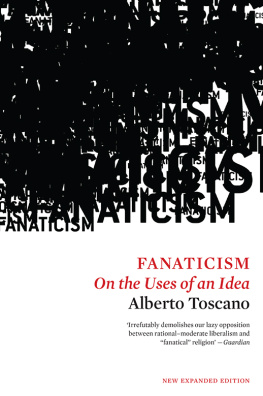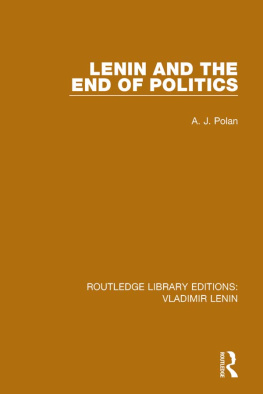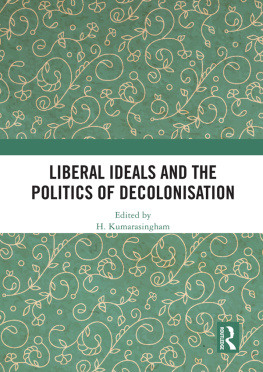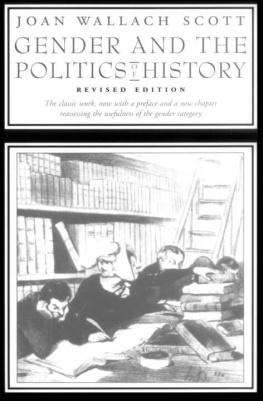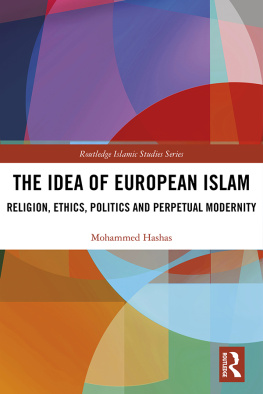
FANATICISM
On the Uses of an Idea
ALBERTO TOSCANO

This expanded new paperback edition first published by Verso 2017
First published by Verso 2010
Alberto Toscano 2010, 2017
All rights reserved
The moral rights of the author have been asserted
1 3 5 7 9 10 8 6 4 2
Verso
UK: 6 Meard Street, London W1F 0EG
US: 20 Jay Street, Suite 1010, Brooklyn, NY 11201
versobooks.com
Verso is the imprint of New Left Books
ISBN-13: 978-1-78663-054-4
ISBN-13: 978-1-78663-055-1 (UK EBK)
ISBN-13: 978-1-78663-056-8 (US EBK)
British Library Cataloguing in Publication Data
A catalogue record for this book is available from the British Library
Library of Congress Cataloging-in-Publication Data
A catalog record for this book is available from the Library of Congress
Typeset in Fournier by Hewer Text UK Ltd, Edinburgh
Printed in the US by Maple Vail
In memory of
Joel Olson (19672012)
and
Mark Fisher (19682017)
Contents
Who writ the histories of the Anabaptists but their enemies?
Richard Overton
They claimed the rights of the human race; but they asserted them like wild beasts.
Voltaire, Essai sur les murs
They saw nothing but a question of philosophy and religion in what is really a question of revolution and politics.
Robespierre
Not everything that is irrational can be dismissed as stupidity.
Ernst Bloch, Heritage of Our Times
There are few terms in our political vocabulary as damning as fanatic. Beyond tolerance and impervious to communication, the fanatic stands outside the frame of political rationality, possessed by a violent conviction that brooks no argument and will only rest, if ever, once every rival view or way of life is eradicated. A fanatic, Winston Churchill once quipped, is someone who cant change his mind and wont change the subject. He or she is also a subject who will not change, an intransigent, incorrigible subject. Though one might hazard explanations as to the elements or sources of fanaticism, fanatical action itself, lying outside the domain of negotiation, is most often viewed as undeserving of the assumption of rationality that commonly governs our evaluation of social and political behaviour. Those who refuse dialogue, so the reasoning goes, are unworthy of our understanding. Here our powers of empathy, our ability to reach into anothers heart, find it impossible to penetrate the blank stares of those who would murder innocents with abstract, serene satisfaction.
Fanaticism, Hegel declared, is enthusiasm for the abstract. The question of abstraction is at the core of any political and philosophical reckoning with fanaticism. It is abstraction, and the universality or egalitarianism that attaches to it, which separates the figure of the fanatic from that of a mere madman, and into the bargain lends fanaticism its allure of extreme danger. The apparent anti-humanism of fanaticism is often the vehicle for a humanism, that is, a political universalism that trespasses Rethinking the history and politics of fanaticism is not simply a way of resisting the invidious calls for a defence of the beleaguered West against its irrational adversaries; it also allows us to confront the impasses and hopes of a radical politics of emancipation and egalitarianism a politics that over the centuries has frequently been smeared with the charge of fanaticism.
This book explores the enigmatic and unstable conjunction, under the banner of fanaticism, of a refusal of compromise and a seemingly boundless drive to the universal. Sometimes, the accusation of fanaticism is levied at those who inflexibly, intolerantly and even insanely defend
Burke did not mince his words:
These philosophers are fanaticks; independent of any interest, which if it operated alone would make them much more tractable, they are carried with such an headlong rage towards every desperate trial, that they would sacrifice the whole human race to the slightest of their experiments. Nothing can be conceived more hard than the heart of a thorough-bred metaphysician. It comes nearer to the cold malignity of a wicked spirit than to the frailty and passion of a man. It is like that of the principle of Evil himself, incorporeal, pure, unmixed, dephlegmated, defecated evil.
Coldness was the very predicate chosen by Herder to identify philosophys dangerous fanaticism, for which he employed the term Schwrmerei,
In so doing, they mined the linguistic and etymological resources of the family of terms that we are investigating here under the rubric of fanaticism. Where Schwrmerei denotes confusion, unrealism, and a menacing multitude, a swarm, Political violence and intransigent emotions are certainly one of the concerns of this book, but my principal focus will be on the various configurations taken by the idea of fanaticism in philosophy and theory, with particular attention to its shifting polemical uses and what they might reveal both about the critics of fanaticism and about the types of political behaviour that elicit this accusation.
investigating the intellectual and emotive frameworks that govern the perceptions of insurgent ideologies can contribute to orienting ourselves in an otherwise opaque present.
There is a certain irony in approaching fanaticism historically, since one of the abiding features of its employment as a term of abuse is that it is frequently presented as an ahistorical or even anti-historical phenomenon. To describe an agent or an action as fanatical is to lend them a kind of monolithic invariance. Among the most striking aspects of the uses of fanaticism as a political trope is the reliance on analogy, simile, homology. Whether it is the short-circuit between Lenin, Hitler and Thomas act, requires, if not fanaticism proper, than at least its nobler cousin, enthusiasm. Furthermore, for many the drastic and fanatical denial of a history understood in terms of gradual change or development, a denial that may take millenarian or messianic forms, is the conditio sine qua non for a properly modern experience of historical and political time as a time of breaks and anachronisms, discontinuities and irreversibilities.
One of the perhaps more obvious motivations for undertaking this conceptual and historical inquiry is the relatively recent rise in discourse about fanaticism. Though end of history narratives such as Francis Fukuyamas relegate fanatical drives to the zones of history within an otherwise post-historical liberal order, many essayistic and journalistic treatments of the question, though they may note the technological instrumentalities of contemporary religious radicalism, treat fanaticism as anti-historical, anachronistic, atavistic: the revenge upon global modernity of peoples without history, but impassioned by transcendence. This is one of the paradoxes that I will try to investigate: the disruptive force of fanaticism lies in its explicit refusal of history as a domain of gradualism and mediation, combined with a de facto interruption of history as a naturalized mechanism of predictable combinations. The pervasive uncertainty as to whether fanaticism is anti-historical, or a revenge of history, indicates profound tensions in our conceptions of change and action.
Whether by a ruse of reason or a heterogenesis of ends, the violent severance from the rhythms of custom or from the time of deliberation and negotiation would thus be what permits the unfolding of a notion of politics that harbours an uneliminably utopian, even transcendent dimension. Fanaticism here points towards a type of action that is, as Ive suggested, at once sub-historical and supra-historical, but also towards forms of subjectivity that, for related reasons, oscillate between the anti-political and the ultra-political. When the accusation of fanaticism is used to disqualify or reject certain modes of political behaviour or allegiance from the normalized and normalizing vantage-point of a liberalism at once gradual and eternal, it is often difficult to tell whether we are dealing with the refusal to allow other forms of life now separated from the political to trespass into its realm (as in the secular critique of Indeed, it could be argued that fanaticism lends itself so well to a symptomatic inquiry into a hegemonic liberalism because it exposes a fundamental ambivalence in liberalisms apologetic discourse about the place of politics. An investigation of fanaticism can therefore prove instructive, both to the reflexive liberal and to those whom liberalism might be tempted to class as fanatics.

